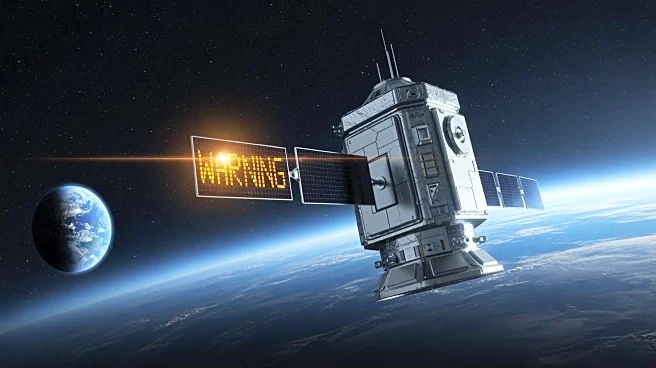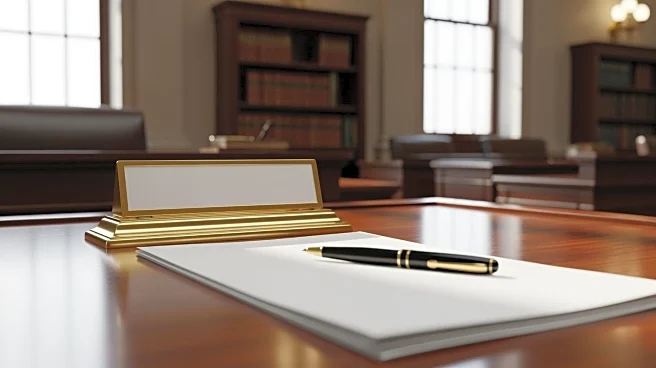What's Happening?
In an unprecedented move, China has reached out to NASA to warn of a potential collision between satellites, marking a significant step in space traffic management. Historically, the US and China have
had a strained relationship in space, with the US banning China from the International Space Station in 2011 and criticizing China's lack of transparency regarding rocket reentries. However, this recent communication suggests a shift towards more open dialogue. Alvin Drew, NASA's Director for Space Sustainability, highlighted this development during a session at the International Astronautical Congress in Sydney, Australia. He noted that China’s National Space Agency proactively contacted NASA, suggesting they would maneuver their satellite to avoid a collision, a first in the history of US-China space relations.
Why It's Important?
This development is significant as it indicates a potential thaw in US-China space relations, which could lead to improved global space traffic management. The US, with its extensive satellite operations, particularly through SpaceX's Starlink, faces increasing challenges in avoiding satellite collisions. China's willingness to communicate and coordinate on such matters could pave the way for more collaborative efforts in space, reducing the risk of incidents like the Kessler Syndrome, where collisions create debris that leads to further collisions. This cooperation could benefit both nations by ensuring the safety and sustainability of space operations, which are crucial for global communications and technology.
What's Next?
While this instance of cooperation is promising, the broader implications for US-China space relations remain uncertain due to existing legislative barriers like the Wolf Amendment, which limits NASA's interactions with China. Future steps could involve more structured agreements on space traffic management and collision avoidance. The international community may also push for more comprehensive frameworks to manage the increasing number of satellites in orbit, ensuring that all space-faring nations can operate safely and sustainably.
Beyond the Headlines
This event highlights the growing need for international cooperation in space as the number of satellites continues to rise. It also underscores the potential for space diplomacy to bridge gaps between nations with otherwise tense relations. The ethical and strategic dimensions of space collaboration could lead to new norms and agreements that prioritize safety and sustainability over geopolitical rivalries.








